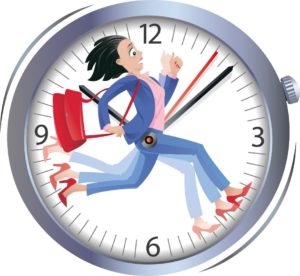 We sat down with Leeanne Hudson, Regional Food Safety, Quality and Regulatory leader at Cargill, former Senior Director of Quality and Technical Services at Kerry and Executive Recruiter at Hire Horizons to get the scoop on how she goes about hiring entry level food scientists to her team and get the answers on the questions you asked. Leeanne provides a really unique perspective of recruiting positions within the food industry.
We sat down with Leeanne Hudson, Regional Food Safety, Quality and Regulatory leader at Cargill, former Senior Director of Quality and Technical Services at Kerry and Executive Recruiter at Hire Horizons to get the scoop on how she goes about hiring entry level food scientists to her team and get the answers on the questions you asked. Leeanne provides a really unique perspective of recruiting positions within the food industry.
IFTSA Crew: Can you describe how to go about finding a position through a recruitment agency, how the process starts off?
Leeanne: When seeking a recruiting firm to work with it is important to find out their speciality. If they don’t specialize in finding entry level positions they are possibly internationally connected, and therefore a recruiter can help you find someone that can help.
It is also important to ask a recruiter where they geographically place their clients as some do not expand outside a specific region. Lastly, a recruiter is there to represent you. They provide interview tips, and a person to actually practice with. They communicate your needs to the company i.e. salary, and fight for you in order to place you in a company that best matches your wants.
I take 30-45 seconds to scan resume: I do a quick keyword search, check education, relevant experience, overall resume structure (to determine the effort level put into creating the resume) and look at career progression for continuous development vs. backward moves or job hopping behavior.

IFTSA Crew: Walk us through the interviewing process.
Leeanne: First off, it’s not luck that gets a candidate through the initial screenings into an interview, it’s deliberate. You’ve already convinced the employer that:
- You can make a positive contribution to the organization, and
- You will be a compatible member of the team.
Here is what you need to convey next: enthusiasm, energy, a genuine interest in the company, a love of challenges, ability to work in teams, strong nonverbal and verbal communication skills, attention to detail while not getting hung up on it, willingness to ask tough questions, and a history of making a difference in an organization. The qualities you want to continue to project throughout the rest of the interview process are:
- Enthusiasm/energy
- Love of challenge and working in teams.
- Great communication skills – verbal and non-verbal
- Demonstrate good listening skills
- That you pay attention to details but don’t get hung up on them.
- That you’re willing to ask tough questions.
- That you not only find a solution, you keep looking for the BEST solution, you don’t settle for a quick fix.

IFTSA Crew: You mentioned that companies are turning more toward behavioral questions, can you expand on this?
Leeanne: Be prepared to answer any questions that start with, “Provide an example when…”. Practice answering these questions by coming up with multiple examples. The interviewer is interested in understanding your approach to conflict resolution so make sure you put emphasis on the part of your example that highlights conflict resolution. NEVER say I’ve had no conflicts.
For example, when asked to explain a time when you underwent conflict with a team member, never answer that you have never had a situation like this. When you do this, you aren’t giving the company the opportunity to see that you can work through problems and that you know the reality of working with people. “They really want to know that you manage through the situation in a positive manner.”
IFTSA Crew: What would be your favourite questions of this type to ask?
Leeanne: My personal favorites to ask a candidate are geared toward determining general fit in a company, as well as to gain an understanding of motivation for leaving a job and/or seeking the one in question:
- I metaphorically hand the candidate a magic wand and ask them to paint for me their ideal job.
IFTSA Crew: What are technical based questions?
Leeanne: These question are more direct. Regardless of the question, “provide the facts and/or quantifiable detail, include results/resulting actions, how and why it is/was achieved and be concise.”
IFTSA Crew: Overall favorite question a candidate asks an interviewer?
Leeanne: My all time favorite is asking an interviewer at the end of an interview, “What reservations do you have about me being a good fit for this position?” This puts the interviewer in the hot seat, and a good interviewer will answer the question for you. Make sure to sit, listen, and take mental notes of their answers.
The key is to LISTEN to the response and take the opportunity to immediately close the gap before ending the interview. If they say you are a great fit for the position, keep your response very short and thank them for the compliment and kind words, and tell them you are looking forward to next step in the process.
Asking this question means you leave the interview with no questions or pondering of how you interviewed.

IFTSA Crew: What are your top three tips for a candidate in an interview?
Leeanne: Be well prepared: know the company, and the job position and duties and demonstrate a genuine interest in both.
Have multiple example ready to exhibit your ability to complete the job successfully and make them applicable to the job. Be concise and specific, and do not ramble. If you are not sure you are answered the question, ask the interviewer if they would like more detail.
IFTSA Crew: Our members asked how to address the question regarding salary. What does a candidate say?
Leeanne: Well if you work with a recruiter they should have already submitted that for you, so you can state that anything within the range they submitted is fine. If this is not the case, reference an industry standard, but try to avoid salary discussion early on. It can prevent you from moving forward in the process when it doesn’t need to. “Do not offer an exact figure – Indicate that your interest is based on the company, associates, the position and opportunity and that you believe that fair, amicable terms can be agreed upon.”
Leeanne Hudson worked in the food and beverage industry for 18 years before becoming a recruiter. She has a Bachelor’s in Biology & Food Science and Masters in Food Safety & QA Management. She has worked in corn milling, sucrose, flavors, sweet ingredients and cereal manufacturing and held various roles as a chemist, food safety specialist, production supervisor, high performance team development coach, quality supervisor, Quality/Food Safety & Regulatory BU Lead, Director and Sr. Director of Quality and Technical Service Before becoming an Executive Recruiter. She now gets to combine her passions for food safety and people – beyond the technical aspects of any job she looks for a cultural match that will enhance the interviewee’s feeling of value and will in turn allow them contribute to building world class organizations.






Leave a Reply